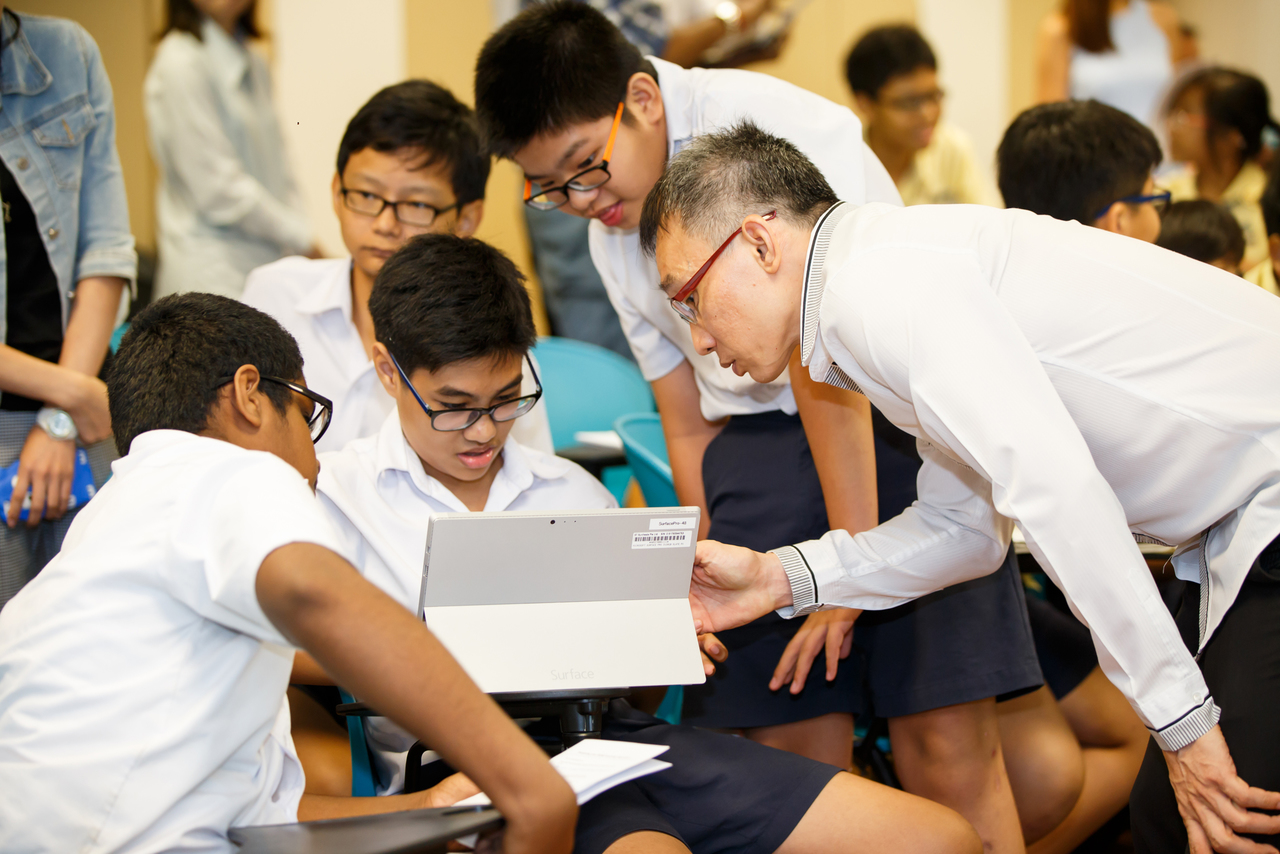Parliament: Schools to devote more time to cyber wellness education
Sign up now: Get ST's newsletters delivered to your inbox

With a new character and citizenship education curriculum kicking in next year, schools will spend about 50 per cent more time discussing cyber wellness issues with students.
PHOTO: KINGMAKER CONSULTANCY
Follow topic:
SINGAPORE - All schools will reinforce cyber wellness education from next year to help students cope with the new pressures that arise from the prevalence of social media and smart devices.
With a new character and citizenship education (CCE) curriculum kicking in next year, schools will spend about 50 per cent more time discussing cyber wellness issues with students.
Education Minister Ong Ye Kung said on Wednesday (March 4) that the increased emphasis on cyber wellness is needed, as "the young of today are different from previous generations in one major aspect, which is their exposure to technology".
"Technology presents children with the influences, choices and decisions previous generations never had to contend with," he added.
Mr Ong was responding to several MPs, including Dr Intan Azura Mokhtar (Ang Mo Kio GRC), Mr Zainal Sapari (Pasir Ris-Punggol GRC) and Mr Ang Wei Neng (Jurong GRC).
The changes in the CCE curriculum came about as a result of a review that started in 2016, said Mr Ong during the debate on his ministry's budget.
Explaining the need to equip students with discernment as they navigate online spaces, Mr Ong said: "We will devote more time, and develop more materials to teach this subject, so that students will learn to critically evaluate what they read online, be able to tell genuine news from falsehoods, and not rely on social media 'likes' for validation.
"They need to be able to say no to bad influences; protect themselves from cyber bullies and predators."
He added: "Values are what distinguish us from computers and machines, (are) what we cannot abdicate to technology. We apply our moral and values system whether we are offline or online. We determine the purpose of technology, we determine the purpose of devices."
To meet the more complex needs in values education, the Ministry of Education (MOE) will also train a group of specialised CCE teachers who will mentor other teachers. By 2022, every secondary school will have such teachers, who will co-facilitate lessons with form teachers.
Mr Ong said the new CCE curriculum will be progressively implemented in all primary and secondary schools from 2021.
Mrs Tan Chen Kee, MOE's divisional director of its student development curriculum division, said the amount of CCE lesson time - from two to four hours a week - will not change, but the overall exposure time to CCE will increase, as the learning opportunities in and out of classrooms will be "more defined and intentional".
Therefore, CCE will be further weaved into lessons and activities, such as co-curricular activities and cohort camps.
"With these changes, every school experience can be a CCE lesson, and every teacher can be a CCE teacher," said Mr Ong, adding that the goal is to make the learning of values more intentional rather than incidental.
In addition, primary schools will place a greater emphasis on imparting moral values in pupils' mother tongue languages, using cultural stories, songs and proverbs for lower primary pupils.
For Primary 4 to Primary 6 pupils, the weekly form teacher guidance period will be broadened to cover topics in national education and citizenship. "For these topics, it is more meaningful to have a diverse group with students from all communities, and therefore these classes will continue to be taught in English," said Mr Ong.
At the secondary school level, contemporary issues, such as bullying, online media, environmental sustainability, and race and religion, will be discussed in CCE lessons at least once a fortnight.
"(Some of these topics) are sensitive to discuss but they are important to help students better understand the complexities of our country and of life," said Mr Ong. "Teachers will guide students to listen attentively, converse respectfully, and be open to differing perspectives."
Ms Rozaina Rusli, New Town Secondary's head of department for student welfare, said: "The cyber world has become part and parcel of our lives and, especially for young people, it is a form of communication, expression and even a source of aspiration.
"There is an increasing need to listen to students' voices and allow them to be more involved in decision-making. In the cyber world, they are on their own and things can happen very quickly, so it is very important that they have the right skills."

